
Europe
17:46, 19-Feb-2019
Behind the Labour split: A bid to realign British politics
By John Goodrich
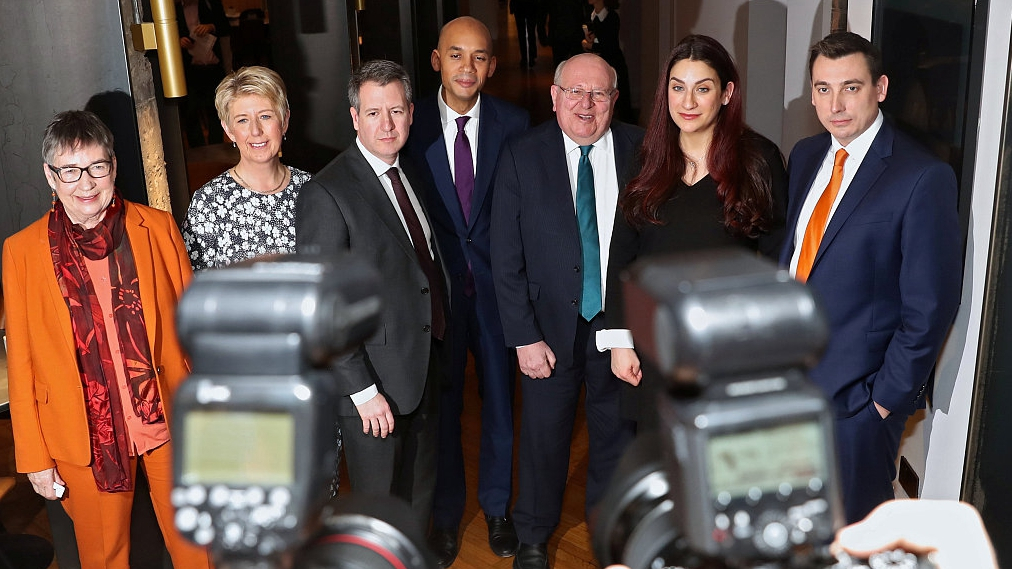
Speculation that a new, centrist political party could be formed in Britain took a jump closer to reality on Monday with the resignation of seven MPs from the opposition Labour Party.
Brexit has jolted the political system in Britain, exposing divisions within parties that were previously covered by "broad consensus". In the country's adversarial system, pitched battles within parties are now as pronounced as big tent wars between them.
The seven lawmakers hope their switch to The Independent Group will mark the beginning of a seismic change – and have appealed for people from across the political spectrum to join them.
1. Who are 'the seven'?
The seven MPs – Chuka Umunna, Luciana Berger, Chris Leslie, Angela Smith, Mike Gapes, Gavin Shuker and Ann Coffey – on Monday announced their resignations from Labour, which all had been members of for decades, with evident sadness.
Frustrations over the refusal of the leadership to pursue a second Brexit referendum, anger at a failure to curb anti-semitism and bullying in the party as well as general discontent at the direction under the left-wing leadership of Jeremy Corbyn were the chief reasons behind their decision.
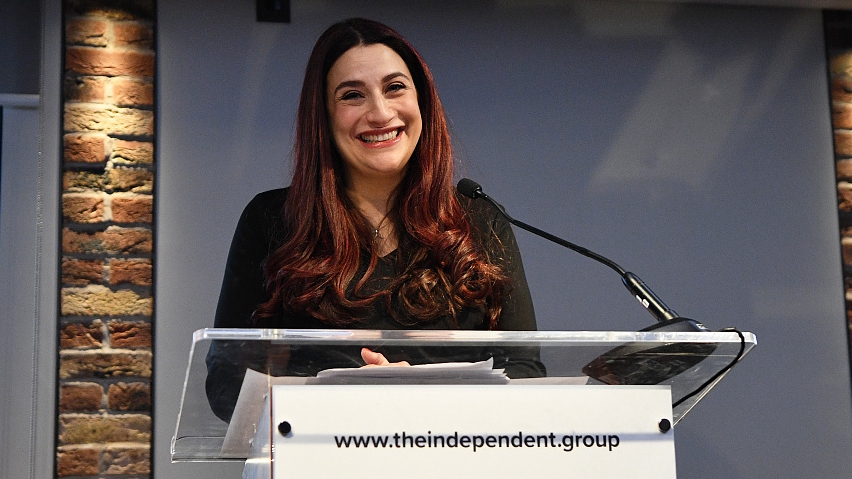
Luciana Berger announces her departure from the Labour Party in London, UK, February 18, 2019. /VCG Photo
Luciana Berger announces her departure from the Labour Party in London, UK, February 18, 2019. /VCG Photo
The seven have all been critics of Corbyn on policy measures, notably Brexit, national security and economic issues, where they see him as "stuck in the past." The group promises to "pursue policies that are evidence-based, not led by ideology, taking a long-term perspective to the challenges of the 21st century in the national interest."
Berger, a pregnant Jewish MP who has suffered repeated anti-semitic abuse in the last few months, said by departing Labour she was leaving behind a "culture of bullying, bigotry and intimidation."
The response from several figures associated with Labour seemed to prove that point, with online attacks over the exits and a tweet from the youth wing of the party calling the seven "cowards and traitors."
2. Macron MK2?
Chatter about a new centrist party has been frequent since Corbyn became Labour leader, and Monday's events are expected to ultimately lead to that happening.
For now, The Independent Group is not officially a party, has no leader or any detailed policy program. Over the coming weeks and months that could rapidly change, but Britain's electoral system makes winning seats in parliament challenging for new parties.
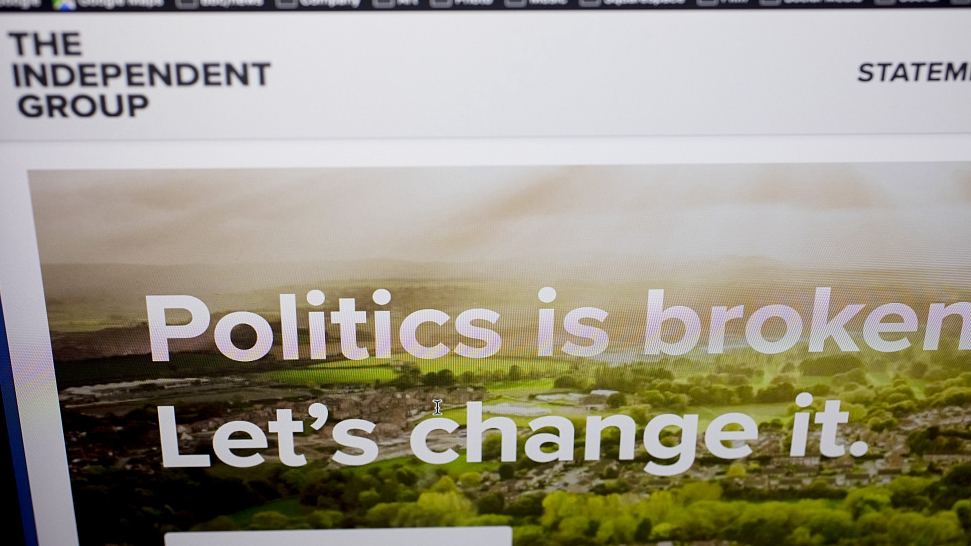
New political movement "The Independent Group" launches its official website, 18 February, 2019. /VCG Photo
New political movement "The Independent Group" launches its official website, 18 February, 2019. /VCG Photo
UKIP, for example, won nearly four million votes in the 2015 election, 12.6 percent of the electorate, but only one of the 650 seats in the parliament.
An insurgent campaign similar to Emmanuel Macron's presidential victory in France in 2017 is almost impossible in Britain, but that's not to say a new grouping can't be influential – especially if it manages to attract more MPs quickly.
3. Who's next?
Now, the question on everyone's lips in Westminster is: "Who's next?"
If the grouping is to become an effective party, it needs money and members. One quick route would be to persuade more MPs to jump from their current parties – 29 more MPs would be needed for the grouping to become the third largest in the parliament, and with that comes public funding.
Umunna, once considered a likely Labour leader, on Monday made a public call for others to join The Independent Group. Several MPs are expected to follow – but perhaps not in the short term. If new members aren't announced soon there is a big risk the new group loses momentum.
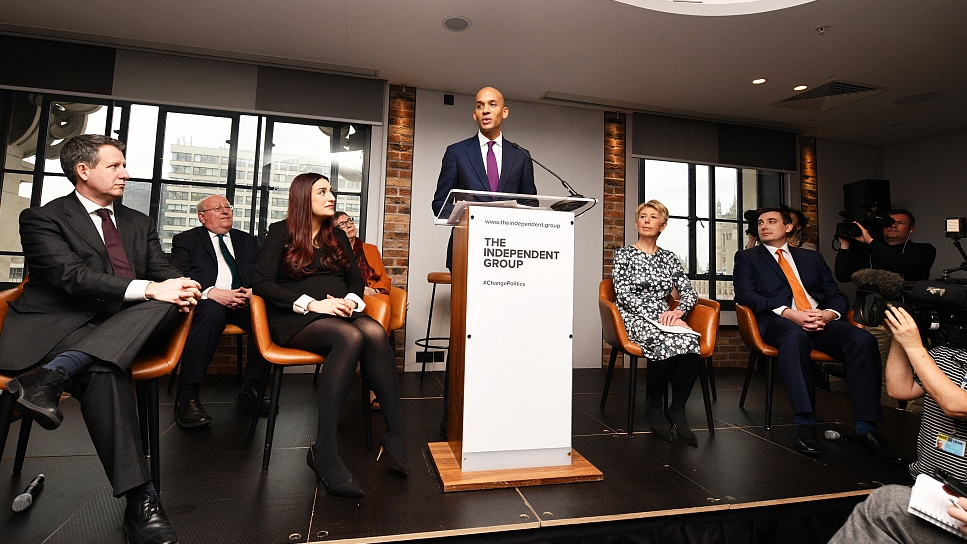
Chuka Umunna announces his resignation from the Labour Party in London, February 18, 2019. /VCG Photo
Chuka Umunna announces his resignation from the Labour Party in London, February 18, 2019. /VCG Photo
Around 20 Labour MPs are rumored to be mulling over following their former colleagues, but those dissatisfied with the party's direction may see staying within it as a more productive way of influencing issues like Brexit. Much will likely depend on how the party responds to the breakaway – a conciliatory approach or a combative stance.
Within the governing Conservatives, MPs who back a second referendum could be tempted to join, but not in large numbers.
The Liberal Democrats, the natural bedfellows of the new grouping, have pledged to work with it but continue to operate as a separate entity.
4. What now for Labour?
The Labour split has been a long time coming. Since Corbyn became Labour leader in 2015, many established figures have moved to the sidelines or left politics altogether.
The party has been divided between moderates who were at home in the party led by Tony Blair and Gordon Brown, and a group led by the leadership who roots in more left-wing politics. The party's deputy leader Tom Watson warned on Monday that more MPs will quit unless it moves closer to the mainstream and addresses problems with anti-semitism.
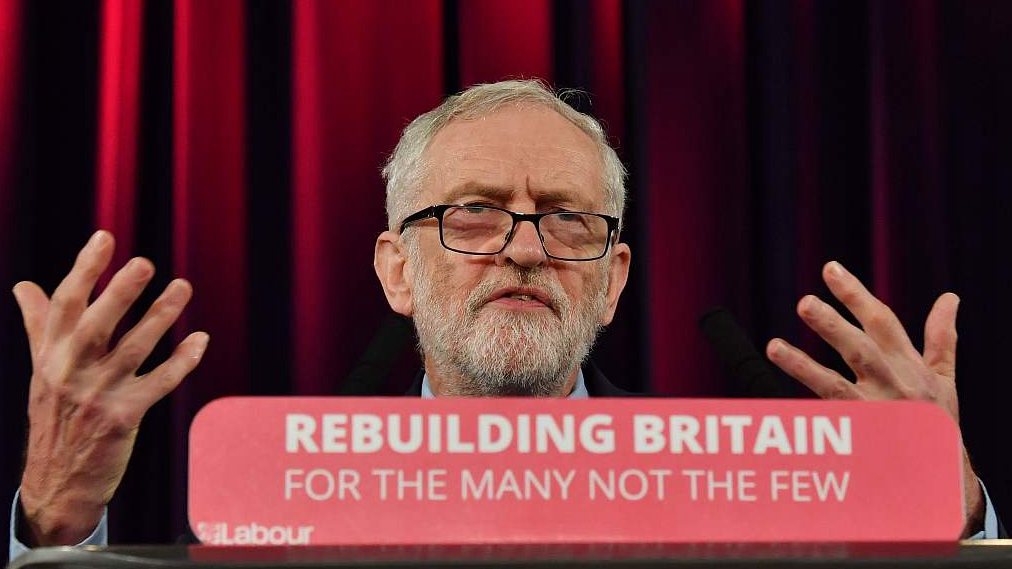
Labour Party leader Jeremy Corbyn gives a speech in Hastings, England, January 17, 2019. /VCG Photo
Labour Party leader Jeremy Corbyn gives a speech in Hastings, England, January 17, 2019. /VCG Photo
All but one of the seven MPs hold large majorities in their constituencies, so if they stand at the next election they will likely have straight fights with Labour candidates. Not coincidentally, several were under threat of deselection by their local parties – they may not have been the Labour candidates at the next election anyway.
5. Does it impact Brexit?
All seven MPs are vocal advocates of a second referendum on Brexit. They were frustrated by the refusal of the Labour leadership to sign up to a fresh poll, despite the overwhelming backing for the policy among the party's membership.
By quitting they will likely have a stronger platform to argue the case for a People's Vote, but could entrench the Labour Party leadership in opposition. The official People's Vote campaign has not aligned itself with the grouping – it needs Labour support to make progress.
The fundamentals of the upcoming Brexit votes in the parliament are unchanged by the emergence of The Independent Group, but it just might be the start of something bigger – a realignment that fills the vacuum in the center ground of British politics.

SITEMAP
Copyright © 2018 CGTN. Beijing ICP prepared NO.16065310-3
Copyright © 2018 CGTN. Beijing ICP prepared NO.16065310-3